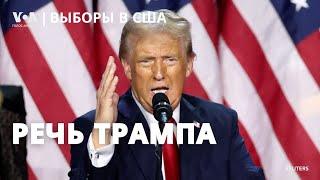
Garner's Writing Lesson #3: The Art of Revision.
Комментарии:

Good advice. A perspective not unfamiliar, however, extremely important to maintain and remain in perspective. Your words here, certainly clarified for me to redirect attention to that which so easly can be almost lost in the jumble of expectations and instead hold solid an attitude for my self, a little better, at least that is, in the realm of writing, for being what I feel to be slow. Thank you.
Ответить
Is it a habit of yours to listen to classical music while you write?
Ответить
The writing is contingent upon the audience.
Clear, direct & concise always work.

Mr. Garner, Can you please confirm that my analysis is correct in which I use Black's Law dictionary (9th ed.) definitions from, which you edited, and the following rulings?
Tennessee Constitution
Article II Section 28
The Legislature shall have power to tax merchants, peddlers, and privileges, in such manner as they may from time to time direct, and the Legislature may levy a gross receipts tax on merchants and businesses in lieu of ad valorem taxes on the inventories of merchandise held by such merchants and businesses for sale or exchange.
31. Associated-Words Canon
Associated words bear on one another’s meaning (noscitur a sociis). Privileges are associated with merchants and peddlers.
Watersv.Farr
Supreme Court of TennesseeJul 24, 2009
291 S.W.3d 873 (Tenn. 2009)
. Because, however, the tax cannot be classified as either a tax on merchants, a tax on peddlers or a tax on privileges, as authorized by our state constitution, the judgment of the Court of Appeals is affirmed.
The language of the statute suggests that the legislature intended the tax to be one on privileges. First, the statute was codified under Title 67, Chapter 4; that chapter of the Tennessee Code Annotated is entitled "Privilege and Excise Taxes." The designation is significant because we have used the terms "privilege tax" and "excise tax" interchangeably. Senter, 260 S.W. at 148 ("Whether the tax be characterized in the statute as a privilege tax or an excise tax is but a choice of synonymous words, for an excise tax is an indirect or privilege tax.")
As an initial matter, privileges designate a larger and more indefinite class of objects of taxation than merchants and peddlers. Phillips v. Lewis, 3 Tenn. Cases 230, 240 (1877). The "fixed legislative and judicial definition" of the term "privilege" as adopted in the 1870 Constitution was set forth by Chief Justice A.O.P. Nicholson in Jenkins:
What are privileges, is a question of construction dependent upon the general law. We have defined it in several cases to be, the exercise of an occupation or business, which require a license from some proper authority, designated by a general law, and not open to all, or any one, without such license. It is a power of the Legislature alone to create privileges, and forbid their exercise without license.
Tennessee Supreme Court
JOHN W. PHILLIPS v. W. G. LEWIS, TAX COLLECTOR, ETC.
3 Tenn. Cas. 230
Jan. 1, 1877
5. SAME. Ownership of property cannot be taxed as a privilege, but the business in which it is used may be taxed as a privilege.
The legislature cannot, under our constitution, declare the simple enjoyment, possession, or ownership of property of any kind a privilege, and tax it as such. It may declare the business, occupation, vocation, calling, pursuit, or transaction, by which the property is put to a peculiar use for a profit to be derived from the general public, a privilege, and tax it as such, but it cannot tax the ownership itself as a privilege. The ownership of the property can only be taxed according to value. (P. 245.)
9. PRIVILEGES. Definition of the term “privilege” as used in the state constitution.
The settled judicial construction, interpretation, and definition of the term “privilege” a,t the time of the adoption of our constitution in 1870, in which sense the term was used in that instrument, was, “the exercise of an occupation or business, which requires a license from some proper authority, designated by a general law, and not open to all, or any one, without such license.” The essential element of the definition is occupation and business, and not the ownership simply of property, or its possession or keeping it. The tax is on the occupation, business, pursuits, vocation, or calling, it being one in which a profit is supposed to be derived by its exercise from the general public, and not a tax on the property itself, or the mere ownership of it. (Pp. 242, 243.)
Cited wdth approval: Mabry v. Tarver, 1 Hum., 94; Cate v. State, 3 Sneed, 121; State v. Schlier, 3 Heis., 283; French v. Baker, 4 Sneed, 193 [see Robertson v. Heneger, 5 Sneed, 258; Columbia v. Guest, 3 Head, 414; Jenkins v. Ewin, 8 Heis., *2334?&; Clarke v. Montague, 3 Lea, 277; Dun v. Cullen, 13 Lea, 204; Railroad v. Harris, 15 Pickle, 702].
Cited and construed: Code (1858 and T. & S.), sec. 550; M. & Y. Code, sees. 604, 617; Shannon's Code, secs. 692, 712.
10. SAME. Same. Legislature cannot declare anything else not included in the definition a privilege and tax it as such, and destroy ad valorem and uniformity of taxation.
Jack Cole Co.v.MacFarland
Supreme Court of Tennessee, at Nashville, December Term, 1959Jun 6, 1960
337 S.W.2d 453 (Tenn. 1960)
It cannot be denied that the Legislature can name any privilege a taxable privilege and tax it by means other than an income tax, but the Legislature cannot name something to be a taxable privilege unless it is first a privilege.
"A privilege is whatever business, pursuit, occupation, or vocation, affecting the public, the Legislature chooses to declare and tax as such." Corn et al. v. Fort, 170 Tenn. 377, 385, 95 S.W.2d 620, 623, 106 A.L.R. 647.
If ANYONE can show where a privilege tax on registration could be non-commercial using "The "fixed legislative and judicial definition" of the term "privilege"" , please let me know.
I only have up to Black's 9th and this is the definition from it :
privilege tax. A tax on the privilege of carrying on a
business or occupation for which a license or franchise
is required. [Cases: Licenses
If you have a newer version, with a different definition, please show me. But since the statute has been re-enacted since before the 9th edition, this one will still apply.
Or try these two definitions, also from Black's 9th :
license fee. 1. A monetary charge imposed by a governmental
authority for the privilege of pursuing a particular
occupation, business, or activity.
activity. 1. The collective acts of one person or of two or
more people engaged in a common enterprise.
So, only privileges in which a profit is derived can be taxed as such. Can you confirm that I'm correct?

Part of learning is listening and thinking. Why in the world do you interrupt what you just told and taught your audience WHILE it is sinking to our thoughts with sudden bursts of music? Is your teaching about you or about your students learning. The music is about you. Learning from your expertise on writing is about your audience.
Ответить
Can anyone provide a citation for the quote "there is no such thing as good writing, only good rewriting," attributed here to Louis Brandeis? The same quote is frequently attributed to Robert Graves. However, I cannot seem to find the original source of the quote from either.
Ответить

























